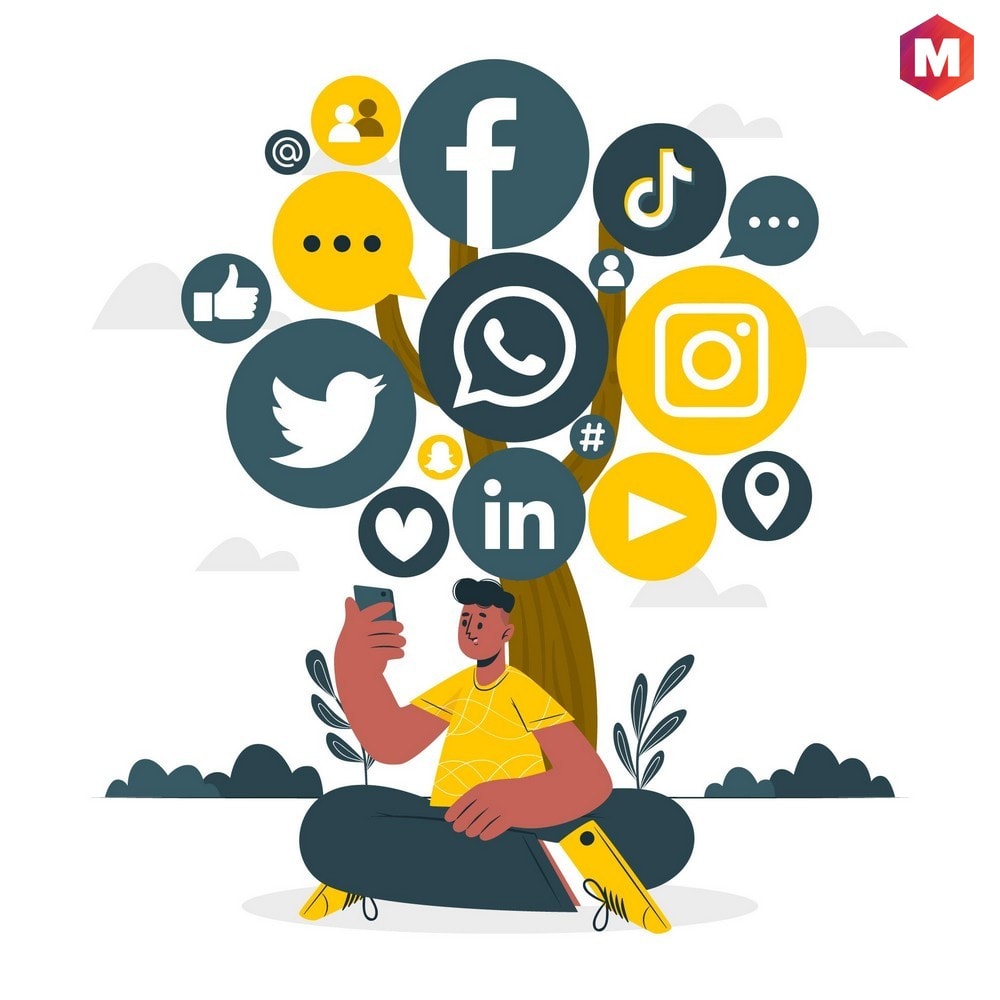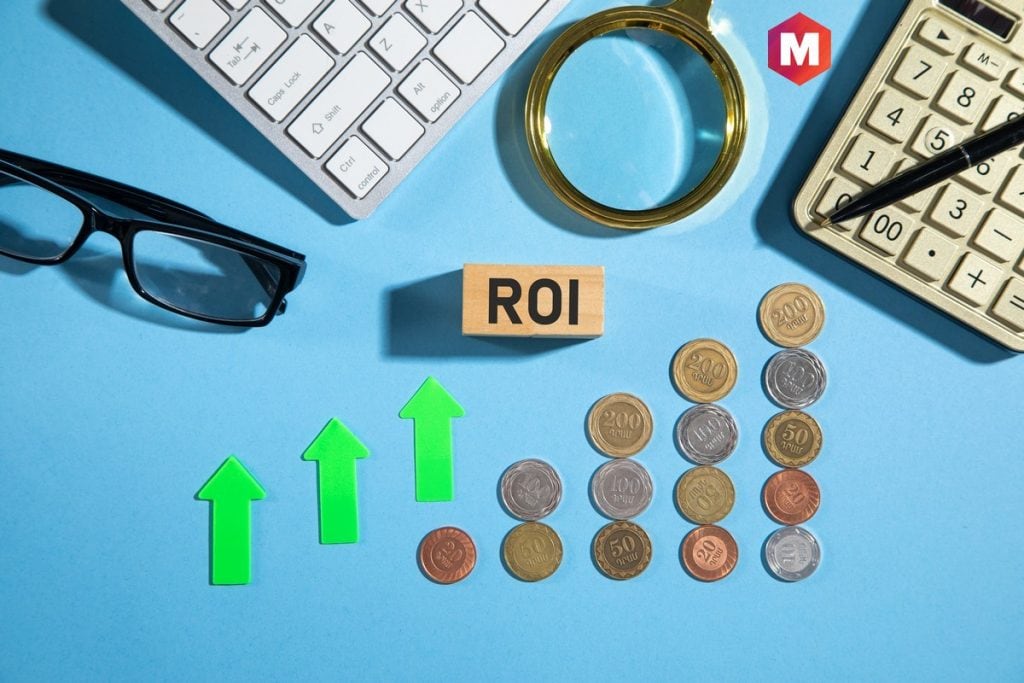Table of Contents
What Is Digital Media?
Digital media is any electronic media that can be stored, accessed, and manipulated using a computer. This includes social media, websites, digital marketing, and advertising. All in all, digital media refers to any media that can be accessed through digital devices such as computers, tablets, smartphones, and so on.
Digital media has many advantages over traditional media like print media. It is more interactive, it is more engaging, and it is more accessible. It also provides a more personalized experience for users. Digital media is constantly evolving, which means that there are always new and innovative ways to use it.
Digital media is a term that encompasses all digital technologies used to create, store, exchange, and use information in its various forms including text, images, audio, and video. It includes everything from social media and website design to digital marketing and advertising.
Digital media has transformed the way we communicate and consume information. It has made it possible for us to connect with people all over the world and share our thoughts and ideas instantly. It has also made it easier for businesses to reach their customers and sell their products and services.
Importance of Digital Media Platforms
1. Facilitates Social Interaction
Digital media has made it possible for people to connect with each other from all over the world. We can now communicate with each other instantly, which has made it easier for us to build relationships and interact with people we would never have met otherwise.
2. Optimizes Social Media and Brand Recognition
Digital media has made it easier for businesses to reach their customers and sell their products and services. It has also made it easier for businesses to create and maintain a strong online presence.
3. Levels the Playing Field for Small Business
Digital media has leveled the playing field for small businesses. Small businesses can now compete with larger businesses by using digital marketing techniques such as social media marketing and search engine optimization.
4. Aligns With How Consumers Shop
Digital media has transformed the way consumers shop. Consumers can now research products and services online before they make a purchase. This has made it important for businesses to have an online presence.
5. Improves Communication and Collaboration
Digital media has improved communication and collaboration between people. We can now share ideas and work on projects together from all over the world. This has made it easier for us to stay connected and work together on projects.
What are the Three Types of Digital Media Solutions?
1. Owned Media
Owned digital media is any type of digital content that you create and own yourself. This includes your website, your blog, your social media channels, and your email list.
2. Paid Media
Unlike owned digital media, paid digital media is any type of digital content that you pay to have created or distributed. This includes digital advertising, sponsored posts, paid search ads, and branded content.
3. Earned Digital Media
Earned digital media is any type of digital content that is created by someone else and then shared by you. This includes social media mentions, press mentions, and user-generated content.
Making a Digital Media Strategy
A digital media strategy is a plan of action that outlines how you will use a digital media program to achieve your business goals in this digital age.
When creating a digital media strategy, you need to consider what type of content you will create, who your target audience is, and how you will distribute your content. You also need to consider what types of digital marketing as well as online advertising techniques you will use to promote your content.
Your digital media strategy should be tailored to your specific business goals. It should also be flexible enough to change as the digital landscape changes.
What Are the Benefits of Digital Media?
There are many benefits of digital media. Here are some of the most important ones
1. Increased Reach
Digital media has a wider reach than traditional media like print newspapers. This means that you can reach more people with your message.
2. Greater Engagement
Digital media is more interactive than traditional media. This means that you can get more people to interact with your content.
3. More Personalized
Digital media is more personalized than traditional media. This means that you can create content that is tailored to the specific needs and interests of your target audience.
4. Increased ROI
Digital media has a higher ROI than traditional media. This means that you will get a better return on your investment when you use digital media to market your business.
5. Greater flexibility
Digital media is more flexible than traditional media. This means that you can change your content and marketing strategies quickly and easily to respond to changes in the marketplace.
Digital Media Trends
1. Social Media
Social media is one of the most popular digital media trends. This type of media allows people to connect with each other and share information. Social media posts are considered one of the effective ways of promotion in the contemporary business world.
2. Mobile
Mobile devices are becoming more popular than ever. This type of media allows people to access digital content on the go.
3. Video
Video is one of the most engaging types of content. This type of media allows you to tell a story and connect with your audience.
4. Personalization
People want content that is tailored to their specific needs and interests. This type of media allows you to create content that is specifically for your target audience.
5. Data
Data is becoming more and more important in the digital world. This type of media allows you to track your performance and make data-driven decisions.
Digital Media Tools
1. Google Analytics
Google Analytics is a free tool that allows you to track your website traffic.
2. Hootsuite
Hootsuite is a social media management platform that allows you to schedule and publish content, track your performance, and measure your ROI.
3. Canva
Canva is a free online design platform that makes it easy to create visuals for your website, social media, and marketing materials.
4. MailChimp
MailChimp is an email marketing service that allows you to create and send newsletters, email campaigns, and other marketing materials.
5. Adobe Creative Suite
Adobe Creative Suite is a set of tools for graphic designers, web designers, and photographers.
Digital Media Job Opportunities
1. Social Media Manager
A social media manager is responsible for creating and managing social media accounts.
2. Digital Marketing Manager
A digital marketing manager is responsible for planning and executing digital marketing campaigns.
3. Content Manager
A content manager is responsible for creating and managing digital content.
4. Digital Strategist
A digital strategist is responsible for developing and implementing digital media strategies.
5. Graphic Designer
A graphic designer is responsible for creating visuals for websites, social media, and marketing materials.
6. Digital Project Manager
A digital project manager is responsible for planning and executing digital projects.
7. Web Developer
A web developer is responsible for creating and managing websites.
8. SEO Specialist
An SEO specialist is responsible for optimizing websites for search engines.
9. Data Analyst
A data analyst is responsible for analyzing data to improve digital marketing performance.
Digital media is a constantly evolving field with new job opportunities emerging all the time. The best way to stay up-to-date on the latest trends and job openings is to follow industry news and job boards.
Difference Between Digital Media and Digital Marketing?
Digital marketing is the process of using digital media to promote a product or service. Digital media is the platform that you use to execute your digital marketing campaigns.
Digital marketing is a strategy that you use to reach your target audience. Digital media is the tool that you use to execute your digital marketing strategy.
Digital Media Marketing for Business
As a business, you need to be using digital media to reach your target audience. Digital media marketing is a great way to connect with your customers and promote your product or service.
Here are some tips for using digital media marketing:
- Use social media platforms to connect with your target audience.
- Use content marketing to provide value to your audience.
- Use online ads to reach new customers.
- Use email campaigns to stay in touch with your customers.
- Use mobile apps to engage with your customers on the go.
Where can you find digital media products?
1. eCommerce
eCommerce platforms like Amazon and eBay are great places to find digital media products.
2. Games
You can find digital media products on console, online, and mobile games.
3. Websites and Mobile Applications
You can find digital media products on websites and mobile applications.
4. Animation
You can find digital media products on platforms like YouTube and Vimeo.
5. Social Media
Social media platforms like Facebook, Twitter, and Instagram are great places to find digital media products.
6. Video
You can find digital media products on video-sharing platforms like YouTube and Vimeo.
7. Augmented Reality
You can find digital media products on augmented reality platforms like Pokemon Go and Snapchat.
8. Virtual Reality
You can find digital media products on virtual reality platforms like Oculus Rift and PlayStation VR.
9. Data Visualization
You can find digital media products on data visualization platforms like Tableau and Google Sheets.
10. Location-Based Services
You can find digital media products on location-based services like Foursquare and Yelp.
11. Interactive Storytelling
You can find digital media products on interactive storytelling platforms like Wattpad and Episode.
How different industries use Digital Media
1. Entertainment
The entertainment industry uses digital media to distribute content and promote products. YouTube and Netflix are used to distribute content, and social media platforms like Twitter and Instagram are used to promote products.
2. Technology
The technology industry uses digital media to promote products and services. YouTube and CNET are used to promote products, and social media platforms like Twitter and LinkedIn are used to promote services.
3. eCommerce
The eCommerce industry uses digital media for promoting products and services to generate leads and conversions. Amazon and eBay are used to promote products, and social media platforms like Facebook and Pinterest are used to promote services.
4. Non-Profit
The non-profit industry uses digital media to promote its cause and raise awareness. YouTube and GoFundMe are used to promote the cause, and social media platforms like Twitter and Facebook are used to raise awareness.
5. Health
The health industry uses digital media to promote healthy living and prevent disease. WebMD and Everyday Health are used to promote healthy living, and social media platforms like Twitter and Facebook are used to prevent disease.
6. Education
The education industry uses digital media to promote education and lifelong learning. Khan Academy and TED are used to promote education, and social media platforms like Twitter and LinkedIn are used to promote lifelong learning.
7. Marketing and advertising
The marketing and advertising industry uses digital media to reach consumers with their message. Google and Facebook are used to reach consumers, and social media platforms like Twitter and Instagram are used to engage with them.
8. Government
The government uses digital media for a variety of purposes, including promoting government programs, communicating with citizens, and providing information about government services. USA.gov and GovLoop are used to promote government programs, and social media platforms like Twitter and Facebook are used to communicate with citizens.
9. Sports
The sports industry uses digital media to promote athletes, teams, and events. ESPN and Bleacher Report are used to promote athletes, and social media platforms like Twitter and Instagram are used to promote teams.
10. Environment
The environment industry uses digital media to promote environmental awareness and sustainability. Greenpeace and Earth911 are used to promote environmental awareness, and social media platforms like Twitter and Facebook are used to promote sustainability.
11. Television
The television industry uses digital media to distribute content and promote shows. Hulu and Netflix are used to distribute content, and social media platforms like Twitter and Facebook are used to promote shows.
12. Publishing
The publishing industry uses digital media to distribute content and promote books. Amazon and Goodreads are used to distribute content, and social media platforms like Twitter and Facebook are used to promote books.
13. Music
The music industry uses digital media to distribute music and promote artists. iTunes and Spotify are used to distribute music, and social media platforms like Twitter and Instagram are used to promote artists.
14. Film
The film industry uses digital media to distribute movies and promote actors. YouTube and Vimeo are used to distribute movies, and social media platforms like Twitter and Instagram are used to promote actors.
15. Photography
The photography industry uses digital media to showcase photographers’ work and promote their business. Flickr and 500px are used to showcase photographers’ work, and social media platforms like Twitter and Facebook are used to promote their business.
Conclusion!
In the end, it can be said that digital media has a great impact on many industries. It is pivotal in the way businesses run these days. Digital media industries include social media, online advertising, media and entertainment, mobile gaming, and more. Digital media has allowed for a more global reach when it comes to marketing and advertising. It has also given rise to new industries, like social media, and has allowed old industries to adapt and change with the times.
Digital media has had a positive impact on education and lifelong learning that helped many new learning platforms for learning, like Khan Academy and TED, and has allowed old institutions to adapt and change with the times. In the same manner, it also constructively impacted the environment that empowered new platforms for environmental awareness, like Greenpeace and Earth911.
All in all, it has had a positive impact on industries like government, sports, music, film, and photography. What other industries do you think digital media has had an impact on? Let us know in the comments!
Liked this post? Check out the complete series on Digital Marketing


